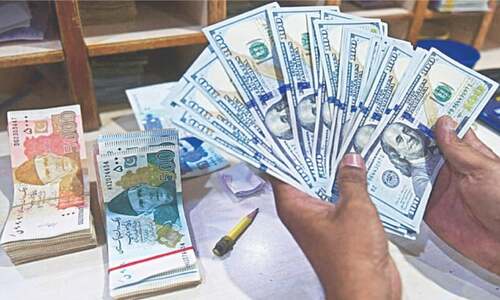ISLAMABAD, May 19: The Competition Commission of Pakistan (CCP), which for the first time has challenged the apparent cartel-like behaviour of banks and cement industry, is in financial blues and may become vulnerable to political interventions.
Dawn has learnt that the CCP officials have not been receiving their salaries for the past six months despite successfully carrying out investigations and hearings against the banks and now putting its hands on the cement industry about which the public have a lot of complaints.
It is feared that if the nascent but vital institution is kept financially dependent on the government alone, it will easily fall prey to political interventions and may not be able to challenge powerful cartels of different sorts and prohibitive trade practices.
CCP Chairman Khalid A. Mirza told Dawn that the commission needed to remain financially independent in order to function effectively and discourage political interventions in its operations.
Internationally, he said, competition commissions had their own sources of funding which came directly through payments of certain percentages of the fee to the commission charged by the regulators of different sectors i.e. the Pakistan Telecommunication Authority, Oil and Gas Regulatory Authority, State Bank of Pakistan and Securities and Exchange Commission of Pakistan, etc.
He said the new competition law was ready and the commission had started functioning, but now the government needed to make the rules for the implementation of the state-of-the-art competition law.
He said the commission had asked the government to make rules for the implementation of seven sections of the law which also included the appointment and terms of reference of the members of the commission, the appeal mechanisms and the financial stability and independence.
But, of the seven, the government was able to form implementation mechanism for only three rules, while rules for the four vital sections were yet to be finalised.
For instance, he said the government had yet to form rules for the appointment and term of references of the investigation officers and members of the commission.
In reply to a question, he said the commission needed to conduct basic research on different sectors in order to know whether there existed any trade practices which were against the norms of competition. For it, the commission needed trained workforce and funds, he added.
Mr Mirza said the commission had followed a judicious way while investigating the cartel-like behaviour of banks and was now conducting raids on the cement industry. He said the commission had no intention to take any step against fair trade practices but would never step back from taking actions against industries or institutions which discouraged competition.
“This is my duty to implement the competition law,” Mr Mirza observed.
To a question, he said the commission would investigate several other sectors like oil industry, auto parts, etc, as well.
When asked that what impact cartels have on the Pakistani economy, he said there was no research available in this regard, but according to the US Federal Department of Justice cartels caused on average 10 per cent increase in prices of different commodities. He said in developing countries like Pakistan, the increase in prices of different things could be as much as 20 per cent or even more and could be gauged only through proper research.
In response to another question, he said he did not know whether the cement sector in Pakistan followed prohibitive trade practices, but it had been observed that there was no entry and no exit in the industry. He said it was believed that national resources were being misused by backing some cement factories which had been badly performing.
Compared to India, he said, the CCP was more active and the competition law in place in Pakistan was one of the best in the developing countries. He said now the time had come to ensure that the law was implemented in letter and spirit and the commission needed timely support of the government and financial independence.













































Dear visitor, the comments section is undergoing an overhaul and will return soon.